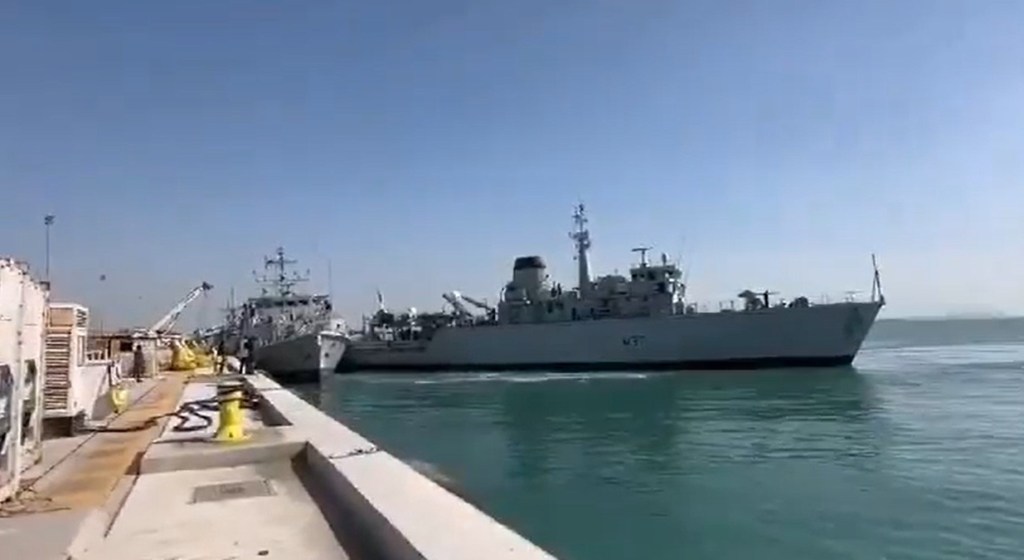Defence Secretary Grant Shapps has said a collision between two Royal Navy warships in a Middle East harbour suggests something ‘clearly’ went wrong – but said it was not incompetence.
An investigation is under way after footage posted on social media appeared to show HMS Chiddingfold reversing into the HMS Bangor in the Persian Gulf off the coast of Bahrain.
No one was injured in the incident, but ‘some damage was sustained’ to the vessels, the Royal Navy said.
Today, Mr Shapps told Sky News: ‘Just as in aviation or many other walks of life sometimes accidents and incidents happen, there’s a full investigation under way.’
When asked if incompetence played a role in the collision, Mr Shapps said: ‘We don’t say it’s incompetence when we see an aircraft come down, a very rare occasion just as this would be a rare occasion.
‘It’s right to leave the investigators some time to work out exactly what’s gone wrong. Something clearly did and we need to see what it is.’
The two minehunters had been based in the Middle East to ensure the safe flow of trade through the waters after increased attacks on vessels in the region.
The two ships seemingly collided while in a harbour
The HMS Bangor suffered damage to the hull
Rear Admiral Edward Ahlgren said: ‘Why this happened is still to be established. We train our people to the highest standards and rigorously enforce machinery safety standards, but unfortunately incidents of this nature can still happen.
‘I assure you that a full and thorough investigation is already under way and any changes in procedure that could prevent further incidents will be rapidly implemented.
‘In the meantime the UK will continue to play a key part in ensuring the safety of merchant shipping in the region.’
Hijackings of ships transiting through the Red Sea by Yemen-based Houthi rebels have fueled fears of war spreading more widely across the Middle East.
The Red Sea is a busy waterway with ships traversing day and night to bring goods between Asia and Europe and beyond.
But many of the largest shipping companies have suspended transit in the midst of militant assaults, instructing ships to instead sail around southern Africa, a journey that is both slower and considerably more expensive.
More than 2,000 ships have been forced to divert their voyage since the first Houthi attack on November 19.
The UK and US mounted a counterattack last week, obliterating dozens of rebel sites in Yemen, raising regional tensions already at fever pitch over Israel’s war in Gaza.


